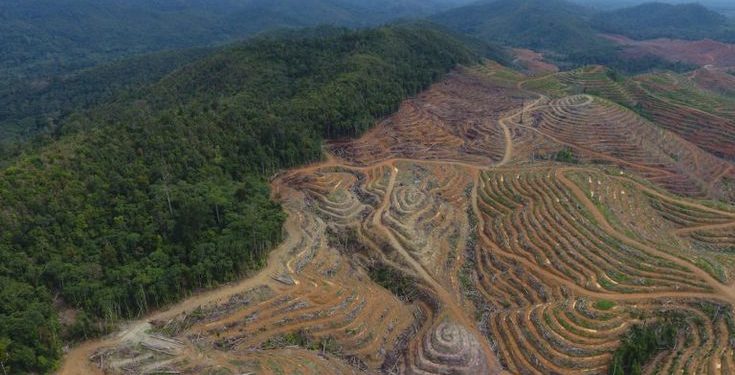Jakarta, Indonesia Sentinel — A new study has found that deforestation is driving tens of thousands of heat-related deaths across tropical regions, with Indonesia was among the hardest-hit countries.
Researchers said clearing forests has intensified heat in the Amazon, Congo, and Southeast Asia by reducing canopy cover, cutting rainfall, and raising wildfire risks. Deforestation accounted for more than a third of the warming experienced by people in affected areas, on top of global climate disruption.
Between 2001 and 2020, roughly 345 million people living in tropical zones were exposed to local warming linked to deforestation. For 2.6 million of them, the added heat pushed temperatures about 3 degrees Celsius higher. In many cases, researchers said, that proved fatal.
The study estimated that deforestation-driven warming caused 28,330 deaths annually over the two decades.
Southeast Asia saw the highest toll, averaging 15,680 deaths a year, largely due to high population exposure and Indonesia’s heightened vulnerability to extreme heat. Africa accounted for about a third of the deaths, while the rest occurred in Central and South America.
In Southeast Asia alone, of the 15,680 annual deaths linked to deforestation with 6,730 occurred in Indonesia, a figure researchers described as deeply alarming.
An estimated 62.9 million people live in areas where forest cover has been lost in Indonesia, with 48.9 million (about 78 percent) exposed to increased heat from deforestation.
The study, published Wednesday (August 27) in Nature Climate Change by researchers from Brazil, Ghana, and the United Kingdom, compared non-accidental mortality rates with temperature changes in areas affected by tropical land clearing.
The authors reported that heat-related deaths caused by deforestation accounted for 1.1% of non-accidental deaths in regions that experienced tropical forest loss, rising to 1.6% in Southeast Asia.
“Previous research estimated that warming from a combination of global climate change and deforestation between 2002 and 2018 contributed to 7.3%–8.5% of all-cause deaths in Berau Regency, East Kalimantan, Indonesia,” the study noted.
Earlier studies had shown how logging and burning trees drive long-term local warming, but this new research is the first to calculate the human death toll.
Read Also:
Indonesia Released New Book on the Current Status of Biodiversity in Sumatra and Sulawesi
Professor Dominick Spracklen of the University of Leeds, one of the study’s co-authors, said the main takeaway is stark: “Deforestation kills.” He stressed that preserving forest canopies would not only save lives but also boost agricultural output.
He added that many may be shocked by the findings because the local dangers of deforestation are often overlooked in global climate debates and in the drive to expand market-oriented agriculture.
“This isn’t just about Western countries pushing to protect forests for the sake of the global climate. These forests deliver direct benefits to local communities. They regulate temperature, bring rainfall, and support the agriculture people rely on to survive. Forests aren’t passive, they work hard and do something profoundly important for us,” he added.
(Raidi/Agung)

























